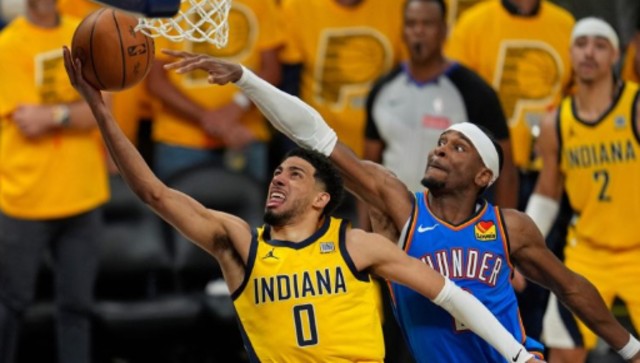
Canada’s Ruth Sylvie Morel, 68, announced that this year’s Paralympic Games will be her last as a competitor. However, she hopes to stay connected with the sport in some capacity in the future. (Dave Holland/Canadian Paralympic Committee/Handout/The Canadian Press)
Ruth Sylvie Morel, a trailblazer in wheelchair fencing from Pincourt, Quebec, may have completed her final Paralympic bout in Paris at 68, but her commitment to promoting the sport is far from over. As one of the oldest competitors at the Paralympic Games, Morel has been a dedicated figure in wheelchair fencing for decades, having represented Canada since the sport's Paralympic debut in Sydney in 2000.
Morel’s passion for the sport remains as strong as ever, and she credits her longevity to a mix of motivation, ambition, and good genetics. Despite feeling the aches and pains of aging, Morel believes staying active is crucial, contrasting her experience with that of older generations. She humorously notes how her mother at 60 didn’t look or feel like she does now.
Facing stiff competition in Paris, Morel’s sabre match against world champion Nataliia Morkvych of Ukraine ended in a 15-1 defeat. However, Morel remains positive, viewing the experience as a valuable lesson from a top-tier athlete. The sport has evolved significantly over the years, with more countries participating and a faster pace of competition compared to when she started. Morel recalls fencing in a gymnasium in Sydney, but in Paris, she competed in the prestigious Grand Palais, a venue she wishes was the norm for her matches.
Despite these advancements globally, Morel is disheartened by the lack of support for wheelchair fencing in Canada. She laments that efforts to grow the sport have been insufficient, and she feels that wheelchair fencers are often overshadowed by athletes in more mainstream sports. Her frustration is palpable, especially given her dedication to the sport, which included running a wheelchair fencing school for 15 years and coaching other athletes.
One of her students, Trinity Lowthian from Ottawa, was also competing in Paris. Although she narrowly lost her first-round repechage match in Sabre, Lowthian is eager for the epee event, her preferred weapon. Lowthian sees Morel as a mentor who paved the way for her and others in the sport. The equipment Lowthian uses, including her fencing chair, is passed down from Morel, symbolizing the older athlete's legacy.
Saskatoon’s Ryan Rousell, another athlete influenced by Morel, competed in the repechage round, winning his first match but falling short in the second. Rousell, who discovered wheelchair fencing through Morel, credits her for introducing him to the sport. Morel's mentorship has left a lasting impact on his career, and he hopes to continue the work she started, carrying the torch forward for the next generation of fencers.
Morel’s influence extends beyond the technical aspects of the sport. For Rousell, who has cerebral palsy, and Lowthian, who faces mobility challenges due to meningitis, Morel’s guidance has instilled confidence and resilience. Although Morel no longer competes in epee due to bursitis in her arm, she hopes to remain involved in the sport, offering her 28 years of experience as a mentor or support figure for younger athletes.
Reflecting on her journey, Morel recalls how a car accident in 1993 led to the amputation of her leg. Sports, particularly fencing, helped her find a sense of value and normalcy in the face of her disability. Morel plans to continue contributing to the sport in any way she can, ensuring that her legacy of determination, passion, and mentorship lives on through the athletes she has inspired.















